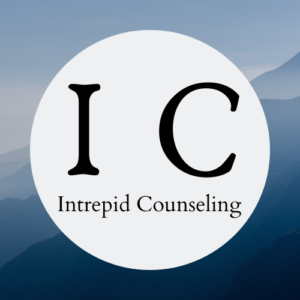Stories > Hard + College Transition + ADHD
Photo by Nubelson Fernandes on Unsplash
Hard + College Transition + ADHD
By Brianna White, Intrepid Counseling
Hard + College Transition + ADHD
Starting college can be a time when people who don’t know they have ADHD “hit a wall,” and start to wonder why they just can’t seem to live up to their academic potential. It’s also a time for students who know they have ADHD sometimes realize their existing coping strategies are going to need an upgrade.
If you’ve thought that you might have ADHD, and your college experience so far is not relieving your concern, it’s a great time to check into it. A common reaction to ADHD diagnosis and treatment in someone your age is grief that they didn’t get diagnosed and get help sooner. So, be your best advocate and find out for sure.
Where to start: Take a look at an ADHD screener, like this one from the reputable Attention Deficit Disorder Association. You can see a one page list of the most indicative symptoms if you download the printable version. (And you don’t have to give them your email this way). If you have a lot in common with that list, take that list with your input on it to your doctor to make a plan together for further evaluation and treatment. More screening self-tests.
Stimulant medication is an effective treatment for ADHD. The National Institute of Health in this nuanced in-depth article about ADHD medication use by college students, comments that “no other behavioral disorder than ADHD, for which drugs have so consistently proven acutely effective.” That doesn’t mean that stimulant medications will increase your grades, only study skills will do that, but if it is working like it is supposed to, ADHD medication alleviates the core symptoms of ADHD. This can improve your quality of life because of how frustrating and stressful ADHD symptoms are. As this HelpGuide.org article explains, ADHD medications temporarily alter brain chemicals to help you “concentrate, control impulses, plan ahead, and follow through with tasks.” There are side-effects to consider though, and finding kind of medication works best for you can be a trial and error process. This article offers a lot of detail to explore. Proceed only under the care of a doctor.
Your ADHD self-care plan, whether you’re recently diagnosed or have known for a while should include a few key elements.
- Medication or not: as determined by you and your doctor.
- Professional mental health support: There’s an expression “pills do not substitute for skills,” which are something a counselor can help you develop. Also, anxiety and depression are more common for people with ADHD (see statistics here), at least partly because ADHD can be so challenging to live with. That means if you’re struggling, you’re in good company, so don’t be ashamed and don’t wait to get help. Cognitive Behavioral Therapy is a well researched type of therapy that has shown good results in ADHD treatment.
- Exercise: It’s one of the most effective ways to relieve ADHD symptoms. It’s free and doesn’t have side effects. Read more about how important and effective exercise is here.
- Accommodations: Your campus ought to have a department with a name like Disability Support Services who you can go to for assistance in registering your need for ADHD academic accommodations with the school. Older students or staff can tell you what it is called and where to find it. You will probably need to show documentation of your ADHD diagnosis which usually looks like a letter from a doctor or therapist stating you’ve been diagnosed with ADHD. Check out this article for a list of accommodations to ask for.
The transition to college is often a momentous change for TCKs who face unique challenges. Maybe you got off a plan just before orientation, maybe your parents are far away, maybe you’re finding out your international education missed some pieces your college seems to expect. Maybe you speak the college’s academic language less well than you thought, or just being new again is bringing up difficult memories. All of these challenges can make the college transition difficult, but what if there’s more to why you’re struggling.
Resources: Each of these organizations have excellent resources all over their sites.
Attention Deficit Disorder Association of America
Children and Adults with Attention-Deficit/Hyperactivity Disorder (CHADD)
_____________________________________________________________________


Brianna White

